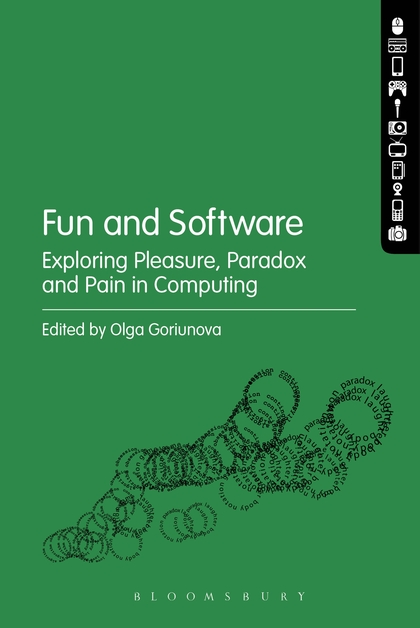Computational Culture, 5: Rhetoric and Computation (2016)
Filed under journal | Tags: · algorithm, code, computation, language, machine, philosophy, rhetoric, semantics, software studies, theory
“How can machines be rhetorical? The readers of Computational Culture need not be convinced that computation drives the digital and networked spaces in which we interact, argue and communicate: word processing programs, videogames, banking and commerce systems, social networking sites, and smartphone apps that track our data (both with and without our knowledge) are all evidence that computation in code shapes nearly every space we inhabit. Computation in code affects and effects our lives. Computational machines affect us through their programming and design, as well the discourse they can generate, via text, image, sound, and so on. By writing computer code and software, programmers and designers construct machines that make arguments and judgments and address audiences both machinic and human. In this sense, even the most mundane computational technologies can be seen as rhetorical –from the grocery store check-out scanner to the high school graphing calculator–because any computational machine shapes and constrains behavior. […]
Software studies has paved the way for many disciplines to approach software as an object of study and computer programs as written artifacts, and we may add rhetoric to our toolkit to do so. We can use rhetoric to interpret the ways that computation addresses and responds to various audiences and exigencies, makes assertions about identities, and ultimately participates in a complex ecology of forces that shape behavior and perception. This version of rhetoric is more expansive than the limited, Aristotelian definition rhetoric as the ‘available means of persuasion.’ Just as software studies recognizes that software is more than code, and that code is more than ones and zeros, contemporary rhetoric is interested in more than the content of arguments; it also concerns the relational forces that precede and exceed arguments.” (from the introduction)
With thematic texts by Steve Holmes, John Tinnell, Kevin Brock, Elizabeth Losh, Jennifer Maher, Alexander Monea, Andreas Birkbak & Hjalmar Bang Carlsen, Matthew Bellinger; articles by M. Beatrice Fazi, Erica Robles-Anderson and Patrik Svensson, Michael Lachney, William Babbitt & Ron Eglash, and review section.
Edited by Annette Vee and James J. Brown, Jr.
Published in January 2016
Open Access
ISSN 2047-2390
Olga Goriunova (ed.): Fun and Software: Exploring Pleasure, Paradox and Pain in Computing (2014)
Filed under book | Tags: · abstraction, aesthetics, affect, algorithm, art, body, code, computing, game, humour, labour, logic, media, media theory, politics, programming, software, software art, software studies, theory, time

“Fun and Software offers the untold story of fun as constitutive of the culture and aesthetics of computing. Fun in computing is a mode of thinking, making and experiencing. It invokes and convolutes the question of rationalism and logical reason, addresses the sensibilities and experience of computation and attests to its creative drives. By exploring topics as diverse as the pleasure and pain of the programmer, geek wit, affects of play and coding as a bodily pursuit of the unique in recursive structures, Fun and Software helps construct a different point of entry to the understanding of software as culture. Fun is a form of production that touches on the foundations of formal logic and precise notation as well as rhetoric, exhibiting connections between computing and paradox, politics and aesthetics. From the formation of the discipline of programming as an outgrowth of pure mathematics to its manifestation in contemporary and contradictory forms such as gaming, data analysis and art, fun is a powerful force that continues to shape our life with software as it becomes the key mechanism of contemporary society.”
Texts by Andrew Goffey, Simon Yuill, Matthew Fuller, Luciana Parisi and M. Beatrice Fazi, Adrian Mackenzie, Michael Murtaugh, Geoff Cox and Alex McLean, Wendy Hui Kyong Chun and Andrew Lison, Christian Ulrik Andersen, Brigitte Kaltenbacher, Annet Dekker, and Olga Goriunova.
Publisher Bloomsbury, New York and London, 2014
New Media and Technology series
ISBN 1623560942, 9781623560942
285 pages
Software studies page on Monoskop
Comment (0)Computational Culture, a Journal of Software Studies, Issue Four (2014)
Filed under journal | Tags: · computing, database, facebook, filesharing, networks, social media, software, software studies
“What marks much of the work presented in this issue of Computational Culture is its endeavour to pay more analytically precise attention to socio-technical formatting of the present, based on a common assumption that the specificities of computational forms are fundamentally constitutive of that present.” (from the Editorial)
With articles by Paul Dourish, Irina Kaldrack and Theo Röhle, Benjamin Grosser, Dennis Tenen and Maxwell Foxman, Alex Taylor, Jasmin Fisher, Byron Cook, Samin Ishtiaq; comments by Geert Lovink, Mark Marino; and a review section.
Editorial group: Matthew Fuller, Andrew Goffey, Olga Goriunova, Graham Harwood, Adrian Mackenzie
Published in November 2014
Open Access
ISSN 2047-2390

